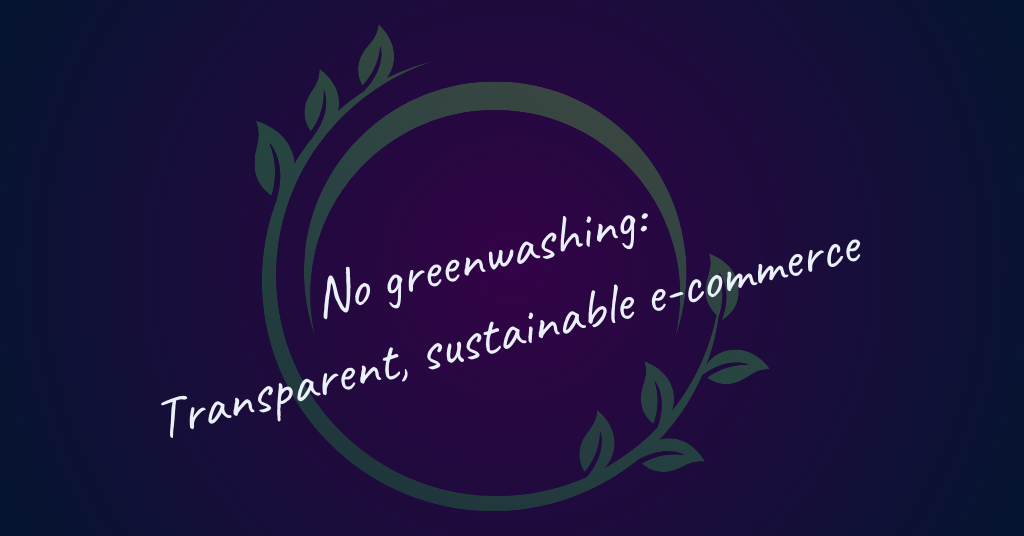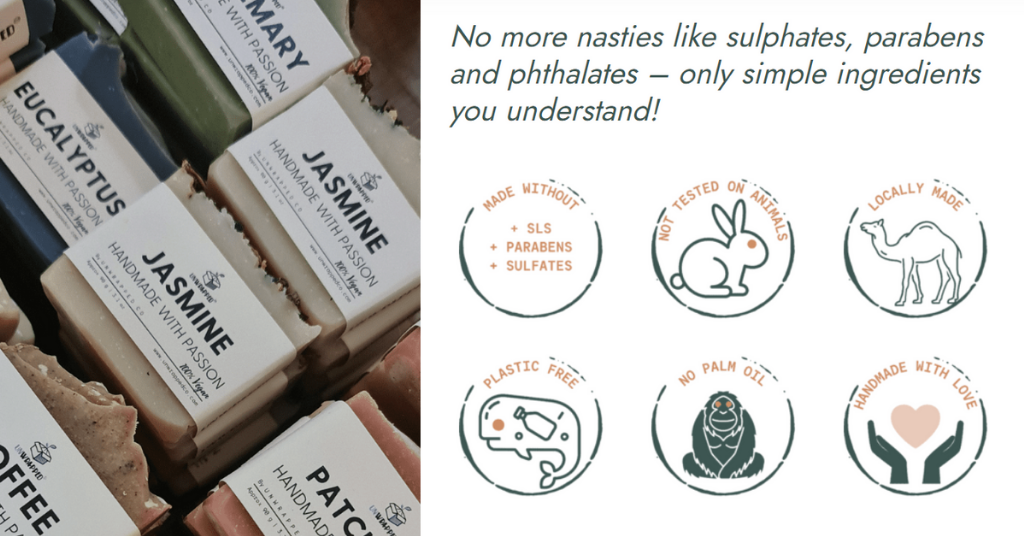
No greenwashing: Transparent, sustainable e-commerce
In the world of online shopping, where green claims are as common as sale banners, how can we tell the real deals from the misleading ones?
Let’s get into the phenomenon of greenwashing and the pressing need for transparency in sustainable e-commerce practices.
What is the greenwashing?
Greenwashing is a bad marketing practice where a company exaggerates or falsely claims to be environmentally friendly, aiming to attract eco-conscious consumers.
Here’s a surprising fact: a significant number of green claims online aren’t entirely accurate. This misleading tactic, termed greenwashing, dresses up non-sustainable practices to appear eco-friendly, leading consumers down a confusing path.
But what does greenwashing look like in e-commerce?
In e-commerce, greenwashing manifests when online brands and products present themselves as “green”, “eco-friendly”, or “sustainable” without substantial evidence or practices to back up these claims. This misleading tactic can misguide online shoppers, making them believe they’re making environmentally responsible choices when, in fact, they might not be.
The “green” checklist: How to spot greenwashing
Customers are actively seeking brands that are truly committed to sustainability. As an e-commerce owner, ensuring your business embodies eco-friendly practices builds trust and positions your brand as a leader in sustainable commerce.
- Secure certifications. Ensure your business obtains reputable environmental certifications. These will validate your genuine commitment to sustainable practices.
- Substantiate your claims. If you’re promoting products as “bio-degradable” or “natural”, be ready to provide specifics. Ensure all claims are backed with facts and evidence.
- Prioritize transparency. As an eco-conscious business, be open about your suppliers, materials, and the environmental impact of your products. Transparent practices build trust and credibility.
Why does transparent and sustainable e-commerce matter?
Opting for transparent, sustainable e-commerce is not just a trend but a significant shift in business ethics. Customers value transparency, and when online businesses clearly articulate their sustainable practices, it cultivates trust.
This transparency fosters customer loyalty and positions the brand as authentic in its commitment. Plus, in the long run, sustainable practices can be cost-effective, saving resources and building a positive brand image.
Several leading e-commerce brands have thrived by championing transparent sustainability, proving that authenticity in this space is both beneficial and vital for success.
The heartbeat of sustainable fashion movement
Araceli Gallego uncovered a startling truth about the world of fashion and its environmental and social costs. This wasn’t just a fleeting realization but a deep awakening that nudged her to create something beautiful and meaningful: Goshopia.

Goshopia isn’t just a name; it’s a sentiment. Merging ‘Go shop’ with ‘Utopia’, it represents a dreamy haven for fashion that’s kind to our planet. With her eco-warrior spirit, Araceli has cultivated a space where each garment isn’t just a style statement but also a pledge for a more conscious future.
Goshopia became the bridge connecting discerning consumers to sustainable designers and artisans. Navigating the world of sustainable e-commerce in a city like Dubai presented its challenges. Yet, their resilience, transparency, and unwavering commitment set Goshopia apart. Beyond just selling, they’ve embraced the role of educators and influencers, fostering a community where sustainability isn’t a niche but a norm.
Creating a sustainable future ‘one bar at a time’
In a world where sustainability moves from being a choice to an imperative, Unwrapped stands out not just as a brand but as a visionary movement. More than just artisanal products, Unwrapped embodies a passionate plea for businesses to adopt practices that benefit both the planet and people.
The brand was born as a need when hands were washed more frequently than ever, and the first product was: moisturizing soap for dry hands. Unwrapped’s every product is a testament to eco-consciousness and the spirit of innovation. They aren’t just crafting products; they’re shaping a sustainable future. Every aspect, from product creation to delivery, resonates with Unwrapped’s core values: integrity, humility, diversity, inclusion, and partnership.

From local markets to interactive workshops, Unwrapped ensures every touchpoint is an opportunity to foster connections and drive their message home. Every interaction with Unwrapped pushes the envelope further, inching closer to a world where businesses see beyond profits and champion the welfare of the planet.
How to make your e-commerce brand green?
If you’re an e-commerce business owner aiming to embrace a more sustainable model, ensuring that your practices reflect genuine eco-consciousness is vital.
- Invest in sustainable packaging. Reduce plastic and excess packaging. Consider using recyclable, biodegradable, or compostable packaging. Remember, it’s not just about the product you sell but also how you deliver it. Collaborate with suppliers to ensure that goods are delivered in minimal, eco-friendly packaging.
- Ensure green supply chains. Partner with suppliers and producers who uphold eco-friendly practices. Conduct regular audits or use third-party services to ensure your supply chain’s environmental and social responsibility.
- Become certified. Not only does this build trust with your customers, but it also holds your business to higher sustainable standards.
- Promote circular economy principles. Implement product recycling, upcycling, or return-back schemes. Consider offering discounts to customers who return packaging or old products for recycling or reuse.
- Engage in green marketing. Avoid greenwashing. Be transparent about your sustainable practices, and educate your customers about them. Utilize your platform to promote green practices and encourage customers to make eco-friendly decisions.
- Implement sustainable shipping practices. Choose delivery methods that have a reduced carbon footprint. This could mean partnering with green shipping companies or offsetting the carbon emissions generated by your deliveries. Offering a ‘green shipping’ option at checkout, where deliveries might take slightly longer but have a reduced environmental impact, can also be considered.
Wrapping up
Making informed choices has never been more critical. Let’s strive for a transparent, sustainable e-commerce landscape where sustainability isn’t just a buzzword but a genuine practice. Let’s make the world a better place!
Let’s book a 30-min mobile strategy session and give your shop a boost.
Let’s book a 30-min mobile strategy session and give your shop a boost.


